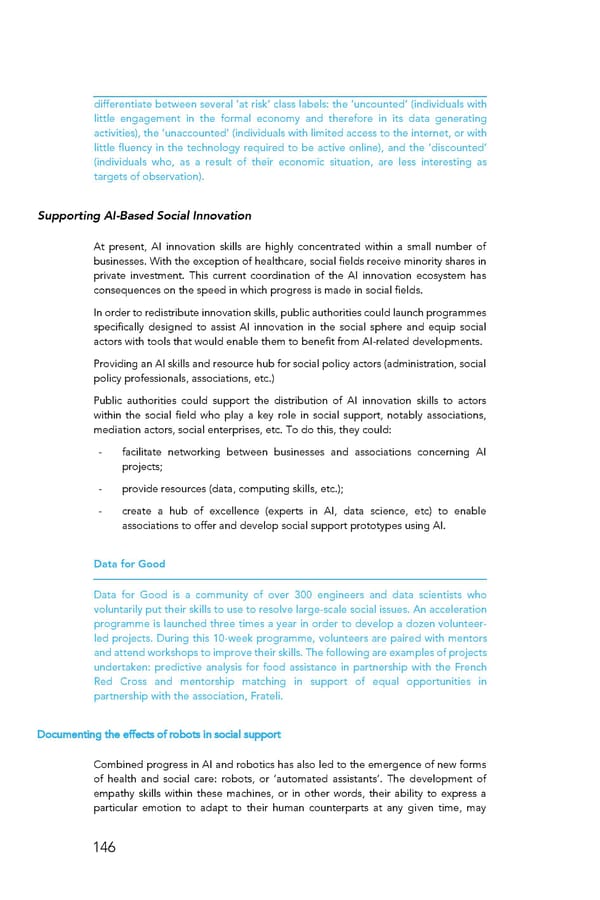differentiate between several ‘at risk’ class labels: the ‘uncounted’ (individuals with little engagement in the formal economy and therefore in its data generating activities), the ‘unaccounted’ (individuals with limited access to the internet, or with little fluency in the technology required to be active online), and the ‘discounted’ (individuals who, as a result of their economic situation, are less interesting as targets of observation). Supporting AI-Based Social Innovation At present, AI innovation skills are highly concentrated within a small number of businesses. With the exception of healthcare, social fields receive minority shares in private investment. This current coordination of the AI innovation ecosystem has consequences on the speed in which progress is made in social fields. In order to redistribute innovation skills, public authorities could launch programmes specifically designed to assist AI innovation in the social sphere and equip social actors with tools that would enable them to benefit from AI-related developments. Providing an AI skills and resource hub for social policy actors (administration, social policy professionals, associations, etc.) Public authorities could support the distribution of AI innovation skills to actors within the social field who play a key role in social support, notably associations, mediation actors, social enterprises, etc. To do this, they could: - facilitate networking between businesses and associations concerning AI projects; - provide resources (data, computing skills, etc.); - create a hub of excellence (experts in AI, data science, etc) to enable associations to offer and develop social support prototypes using AI. Data for Good Data for Good is a community of over 300 engineers and data scientists who voluntarily put their skills to use to resolve large-scale social issues. An acceleration programme is launched three times a year in order to develop a dozen volunteer- led projects. During this 10-week programme, volunteers are paired with mentors and attend workshops to improve their skills. The following are examples of projects undertaken: predictive analysis for food assistance in partnership with the French Red Cross and mentorship matching in support of equal opportunities in partnership with the association, Frateli. Documenting the effects of robots in social support Combined progress in AI and robotics has also led to the emergence of new forms of health and social care: robots, or ‘automated assistants’. The development of empathy skills within these machines, or in other words, their ability to express a particular emotion to adapt to their human counterparts at any given time, may 146
 For a Meaningful AI - Report Page 144 Page 146
For a Meaningful AI - Report Page 144 Page 146